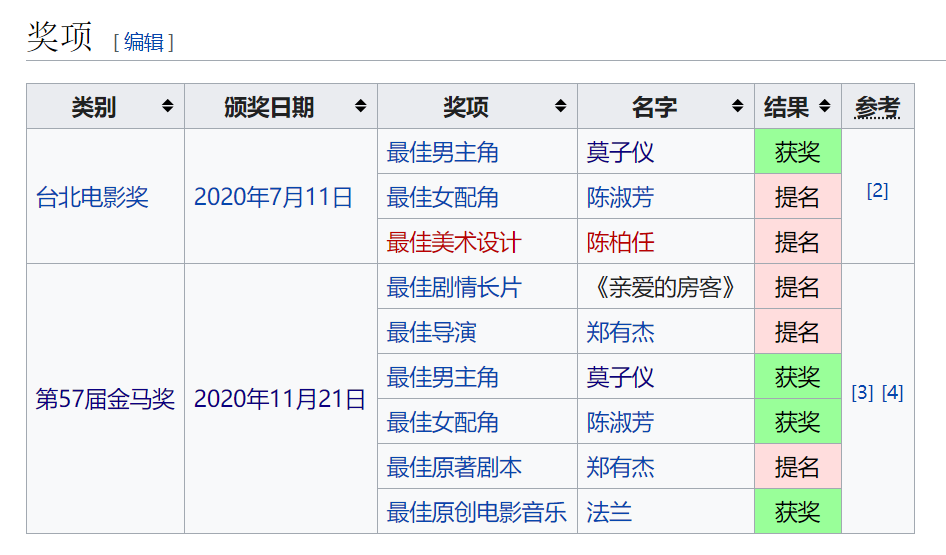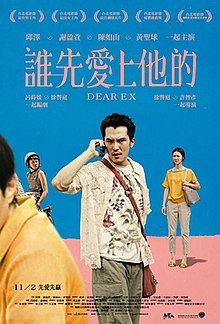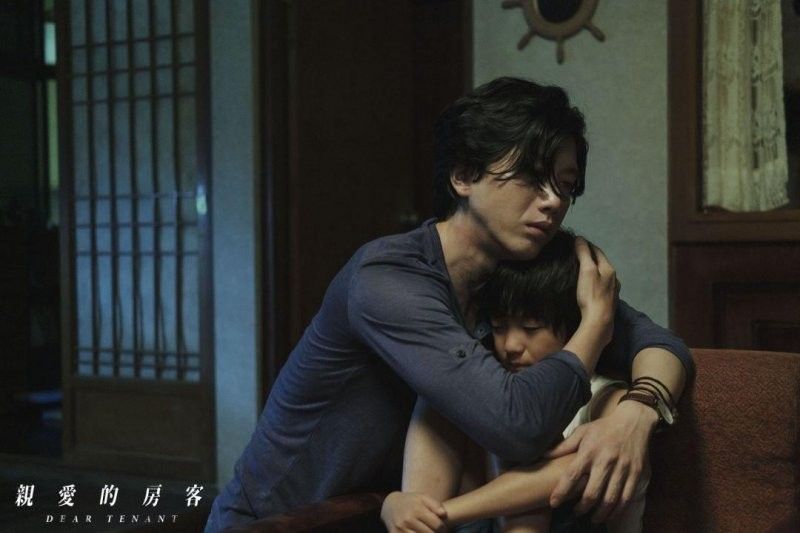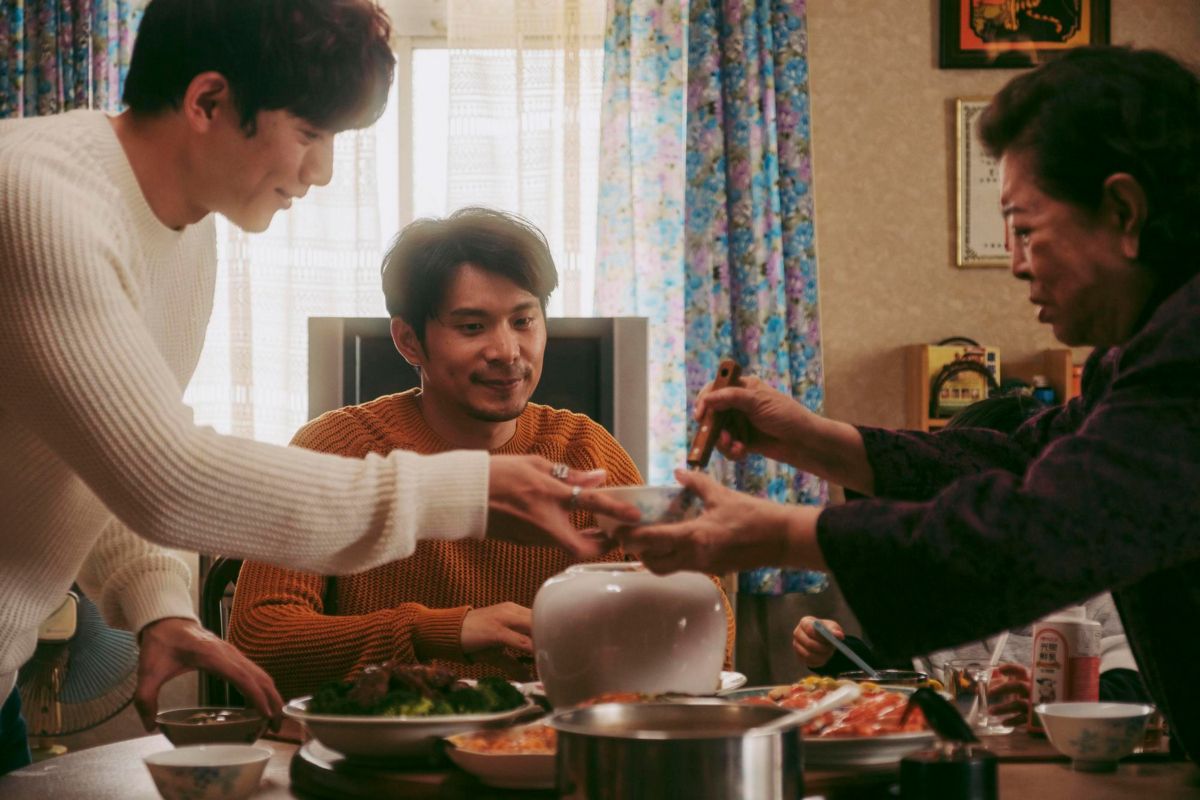
孤獨的觀察者
Golden Horse Film Review Series: "Dear Tenant" - a story after the legalization of gays?
Foreword:
For well-known reasons, last year's Golden Horse Awards lacked the participation of mainland films, but thanks to the support of Southeast Asian filmmakers, the number or quality of films participating in the Golden Horses did not decline. To be sure, the content of the Golden Horse Awards may not be richer than before, but it may be more diverse in subject matter and content.
Because the first "Special Golden Horse" started last year, filmmakers in Taiwan may not have reacted, so filmmakers in Southeast Asia filled the vacancy. But this year, there are a lot of Taiwanese works. I personally think that it may be because mainland filmmakers were unable to participate in this event, but instead encouraged local Taiwanese filmmakers to actively create.

Compared with the mature market, sufficient funds and international resources in the mainland, Taiwan has a small market and limited funds, so it can only explore inward and polish better scripts and acting skills.
The first film review is dedicated to a gay-themed film that has rarely appeared this year: "Dear Tenant". Another gay-themed film shortlisted for the Golden Horse is "The Name Engraved in Your Heart".
"Dear Tenant" finalists include:

It is worth mentioning that maybe in 2018, perhaps inspired by "Who Falls in Love with Him First", I can see a locally produced gay movie almost every month in Taiwan. But the level is uneven, most of the works are powerless, and it feels like it's just a romance film that "borrows gay themes".

Unlike the films above, Dear Tenant, explores very real issues.
Synopsis (spoiler alert):
Lin Jianyi (played by Mo Ziyi) kindly takes care of Zhou Xiuyu (played by Chen Shufang), a landlord who suffers from diabetes and a wound on his feet, and even adopts the nine-year-old grandson Wang Youyu (played by Bai Runyin) who lost his father's landlord. Here, Lin Jianyi is an upright gentleman. But after Zhou Xiuyu's death, his motives began to be questioned. Youyu's uncle Li Gang (played by Yuansuke) returns to the country for a funeral and finds that the house has been transferred to Youyu. Li Gang suspects that Jianyi is murdering his money, and calls the police to investigate, finding more and more evidence against Jianyi.
Following each time the protagonist Lin Jianyi is questioned by the police/prosecutor, the plot begins to trace the past of Jianyi and his same-sex partner Wang Liwei (ie, the son of the landlord Zhou Xiuyu, Wang Ligang's brother, Wang Youyu's father). At the end of the film, Lin Jianyi was cleared of suspicion, but Wang Youyu also followed his uncle Wang Ligang to leave Keelung, where he and Lin Jianyi lived.
Society's Anxiety Projection of "Comrade"
All the characters appearing in the film have certain anxiety projections after learning that the protagonist is a "comrade". And these anxieties stem from deep-rooted "prejudice." This may also be the problem faced by this film in the "post-legalization era of gays".
Gay marriage in Taiwan is now legal, but the stereotype and prejudice against gays has not disappeared. This resistance is not small - you must know that in the 2018 referendum (when the justices had declared gay marriage legal), more than 7 million Taiwanese residents still chose not to have gays and heterosexuals share civil-law marriages. In fact, only a few people know that the legalization of gay marriage in Taiwan came from the interpretation of the constitution by the justices.
Back in the movie, there's more than one scene where this is happening.
When Wang Ligang suspected that Lin Jianyi was trying to seize the ancestral house, he took his nephew, who had been raised by Lin Jianyi for a long time, for a mental health check. A slogan "Prevent Domestic Violence, Prevent Sexual Assault" is posted on the door.
As soon as Lin Jian came to the door of the consultation office and questioned him, he actually doubted what he had done to Youyu.
Wang Ligang's answer made a deep memory to me - "I just came because I didn't know if he was hurt or not!" (to the point) followed by the seemingly kind but hurtful words "I don't want him to grow up in an abnormal environment. ."
These words are so natural and seem to be accusing the gay community of being unable to stop any male temptation - even the children of their lover; at the same time, it also reflects the existence of a gap between the "gay community" and "pedophilia" in society. vague definition. It also seems to magnify the concern that exists in society "Can gays raise children well?" In fact, this question is very simple, aren't gay children now raised by heterosexual families? If you think gays have problems, does that mean that heterosexual families have problems too?

In addition, whenever we see the controversy about "legalization of gay marriage", we can always hear the argument "if gays are legal, will incest, bestiality, and pedophilia be all right?" Not many people will seriously study the differences behind these behaviors, but because the gay community has always been a minority and is considered to be "alienated", it is easy to be thrown into the "non-mainstream" group by the mainstream.
In addition, the vague perception between "comrade" and "pedophile" is also widespread, which is worth studying. I also doubt whether this reflects the fact that many people in the heterosexual group have their fantasies about "young girls" projected on in "Critical Comrades". In other words, since he also has inexplicable fantasies about young girls, it is natural to think that gay groups will also be interested in younger objects.
Of course, there is more than just this segment in the film that presents "society's projection of anxiety towards gays."
Lin Jianyi is a piano teacher. When the unit he works for knows his gay status, the parents of the children he tutors let other teachers accept his tutoring work.
When the prosecutor asked Lin Jianyi: "Since your lover is dead, why didn't you leave the family?" Lin Jianyi replied, "If I were a girl today, would you still ask me this question? My lover left , is there anything wrong with me continuing to take care of his family?" (the lines are all careless)
The police questioned Lin Jian for a while and asked, "Did you still have sex with others when you were raising children?"
Going back to the previous shot: when the child Wang Youyu finished the examination, he rushed out the door, and Lin Jianyi followed closely and kept trying to make him stop. At this time, Wang Youyu suddenly turned around and asked Lin Jianyi, "Why don't you tell yourself the truth, what's the problem with you!" His tone was angry. But in the movie, it was Zhou Xiuyu who did not allow Lin Jian and his children to reveal their true identities.
In this shot, through Mo Ziyi's performance, we can see that his greatest pain should be "not being understood" - not being understood by anyone, even the children he takes care of every day. This pain is speechless, and Mo Ziyi interprets it very well.
Gay is still an identity that refuses to be accepted
In the interaction between Lin Jianyi and other characters, the part about the child and Zhou Xiuyu is actually the most difficult to interpret. I even think the interpretation of Zhou Xiuyu will be a little more difficult. "Children" also have the responsibility of their lover to raise them. But how does Lin Jianyi deal with a parent who does not recognize his identity? In addition, in addition to the heavy responsibility of taking care of Lin Jianyi, he also took on the feeling of "Zhou Xiuyu's disappointment with his son".
In my opinion, the better the relationship between Lin Jianyi and Zhou, the more it can remind Zhou Xiuyu that Lin Jianyi has a deep relationship with his son, and this relationship is not recognized by him. Such feelings are very contradictory. On the one hand, it must be admitted that his care is impeccable, but to admit this incident is to indirectly face the fact that his son is a "comrade".
Before Zhou Xiuyu was about to die, she quietly looked at Lin Jianyi beside the hospital bed and said, "You are really handsome, no wonder my son fell in love with you." This short sentence actually revealed a lot .
For example, Zhou Xiuyu finally faced the relationship between her son and the tenant before her death, but she still used her "own method" to admit this love. It's because "the beauty of the tenant attracts my son", subconsciously, he still avoids talking about "same-sex love", and puts the responsibility somewhat on "his beauty" rather than "my son has a good impression of the same sex" .

In addition, there is a fragment that few people will notice. That is, at the beginning of the movie, Wang Ligang came to the house for dinner, and Lin Jian went out silently as soon as he cooked food for the whole family. When he brought the food to the table, Wang Ligang said, "Sit down and eat together." But he chose to be silent, Zhou Xiuyu Choose to ignore. On behalf of Zhou Xiuyu, he still did not think he was a part of the family at that time, and Wang Ligang may have said something out of etiquette. The saddest thing is that Lin Jianyi also agrees with this identity, and he is only a "tenant", not a "family" who can have dinner together.
Women and children, weaker and weaker
The woman who gets the most attention in the film is Zhou Xiuyu, a gay mother. But there is another character that has never appeared, but exists in other people's lines, that is, Wang Youyu's mother and Wang Liwei's ex-wife.
In the second half of the movie, Lin Jianyi confessed that he had communicated with Wang Liwei's ex-wife on the Internet. He said to her, "Don't you know that your husband is gay?" After that, Wang Liwei was very angry and pinched Lin Jianyi and roared, "It was you who did the harm. Youyu has no mother!"
Yeah? Who killed a child without a mother? I think it's Wang Liwei's dishonesty and the fact that the gay community is still succumbing to the backward patriarchal system. But it must be clear that the object of our criticism is not gays, because gays are still victims in this circle, and the source is still the modern decadent patriarchy and values. However, it is important to emphasize that such gay behavior (formal marriage) is undoubtedly extending the vicious circle by passing one's own risks to the weaker (children and nominal partners).
Moreover, the "secondary existence" of "female" is also expressed in Wang Liwei's roar. In the sentence "You made Youyu have no mother!", the object of his physical marriage is only "the mother of his child", which is an element and a tool to assist the growth of his child. And I even doubt whether the child is also similar to the existence of "property" for him?

Also, go back to the above-mentioned question of the prosecutor asking Lin Jianyi "Why is he still living in his lover's house." Lin Jianyi's answer was, "If I were a girl, would you still ask such a question?" In this clip, the film questioned - the same lover, why are different genders treated differently.
But is it really the same? In fact, if it is a girl, it seems that in addition to being the "lover of the deceased", it also has the identity of "the mother of the child". Therefore, it is still different from Lin Jianyi's predicament.
After the death of the father, the mother of the child should also be the guardian of the replacement, right? But this topic is not explored in the film, and such an arrangement is understandable.
The relationship between the child and the house is reiterated many times in the movie. I think this also seems to be a code. Today's eastern society has family values established with children as the core property. It is because of the child that a comrade must marry someone he does not love, and because of the child, can he be filial and have an explanation for his parents.
Over time, such values can even hypnotize gays themselves. Children become property, and mothers are just a tool to help children grow up.
outside the movie
After watching this movie, I went on to watch the biggest winner of this year's Golden Horse, "The Missing Valentine's Day". It is inevitable to compare the two films. So it's obvious that "Dear Tenant" doesn't actually have much money in production. I even suspect that "Dear Tenant" should have no money to use the Steadicam, and every shot is slightly shaken - yes, every shot, it feels like a hand mirror.
But I personally think the lines and script of "Dear Tenant" are far better than "Gone Valentine's Day".
Aerial cameras were used many times in the movie, maybe it was a relatively large expenditure in the production haha.
Like my work?
Don't forget to support or like, so I know you are with me..
Comment…